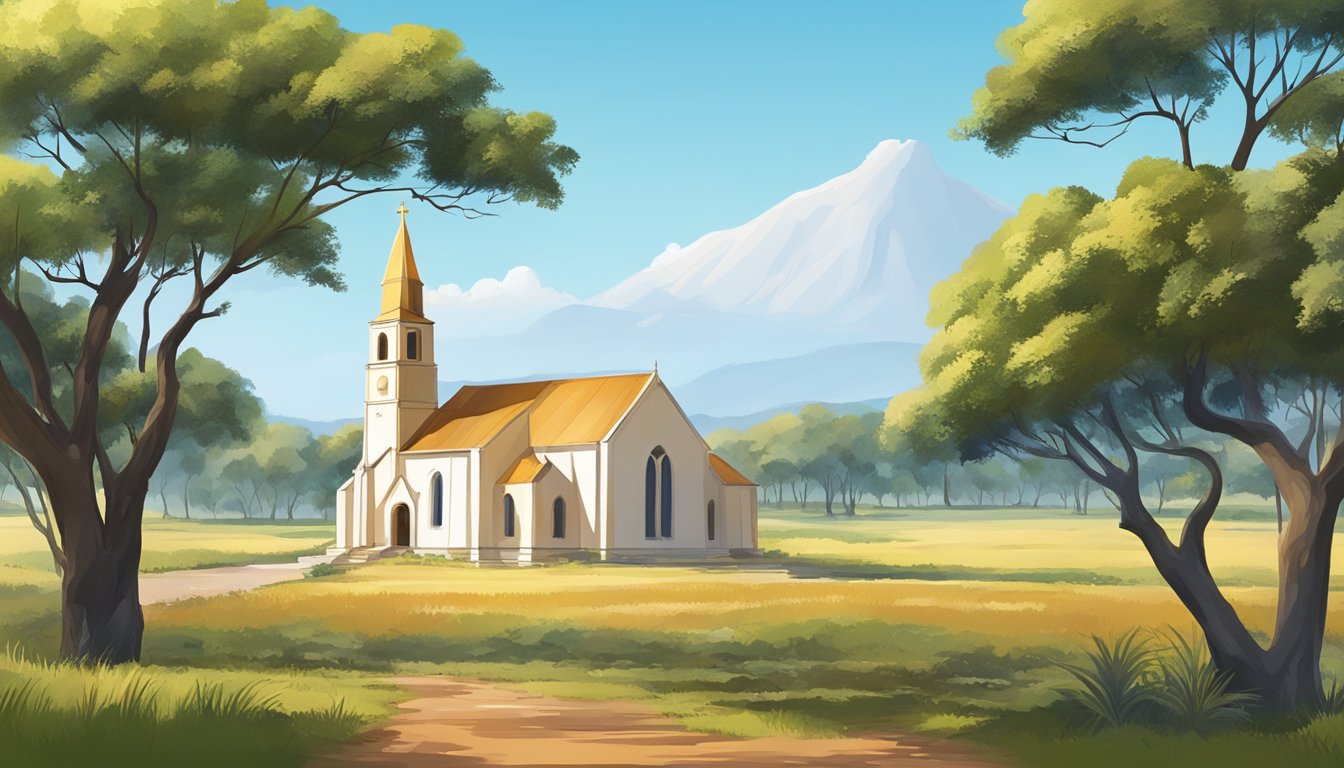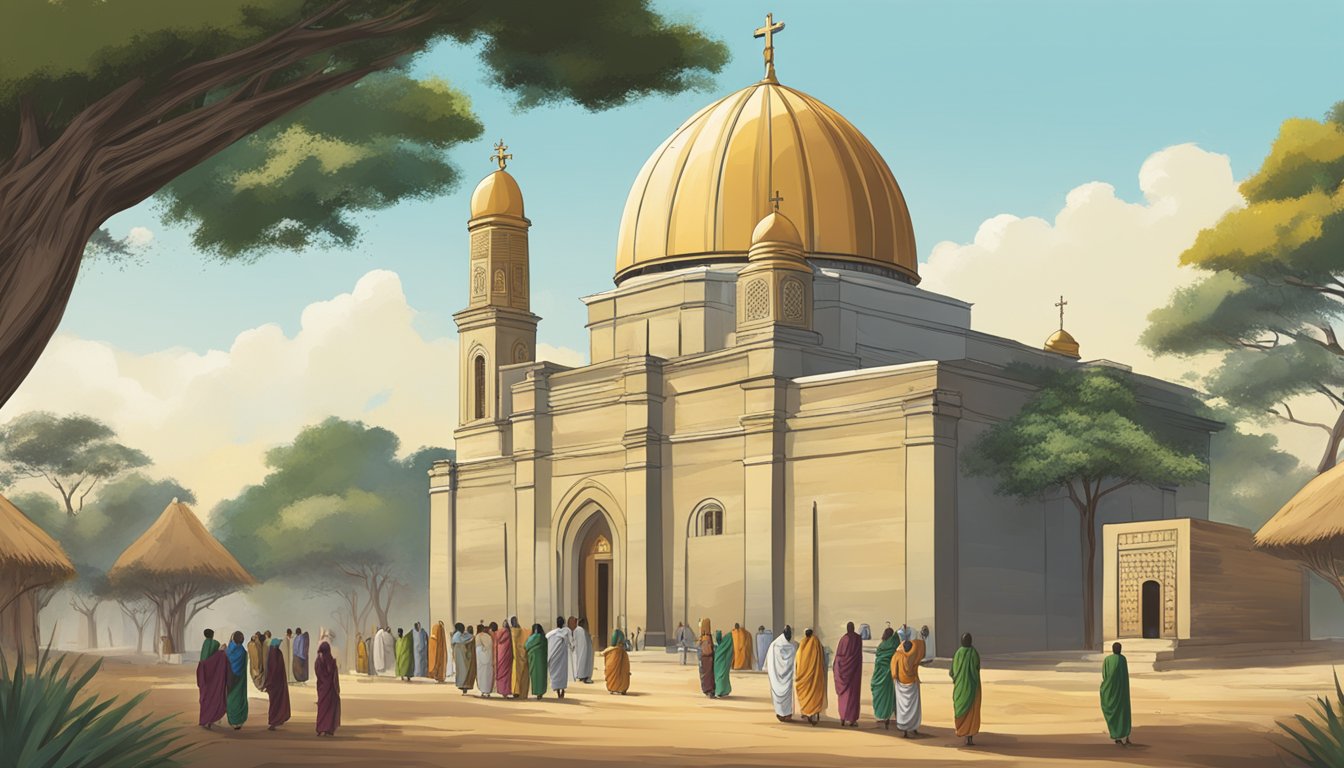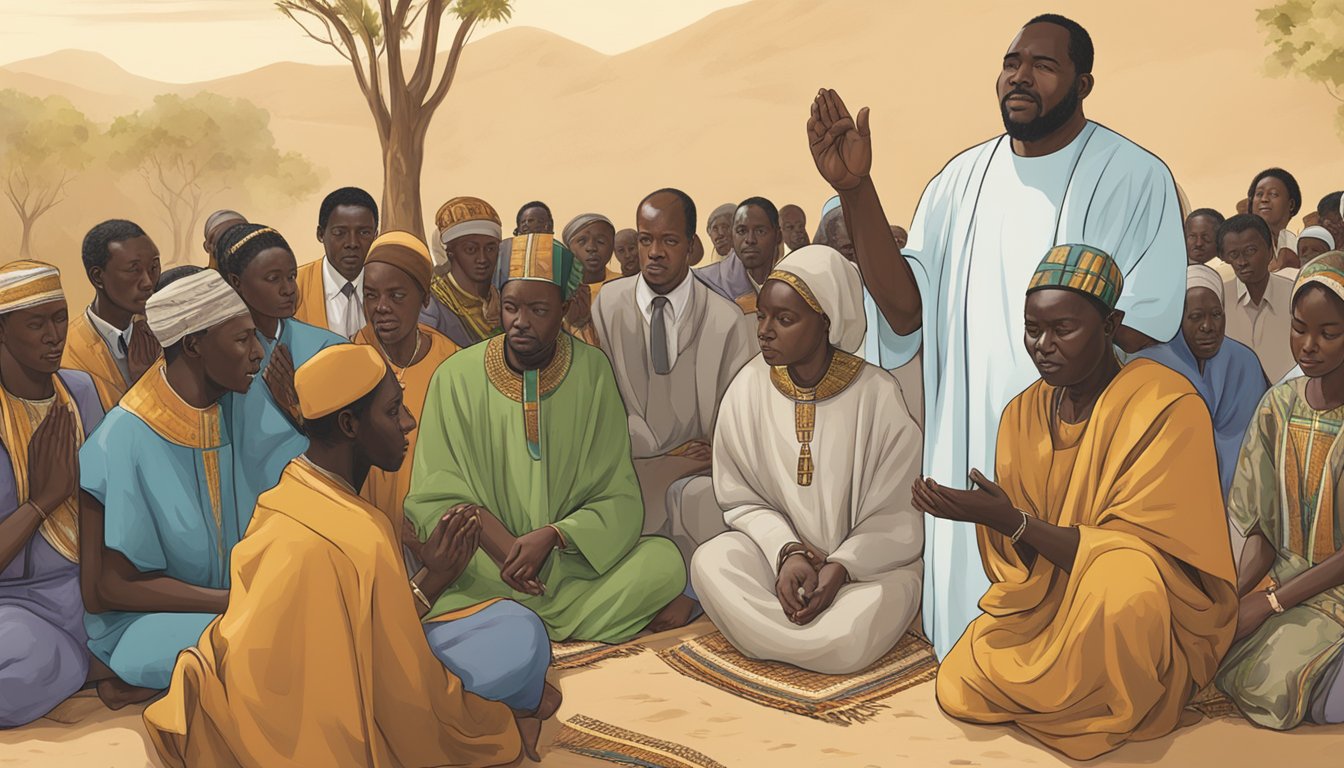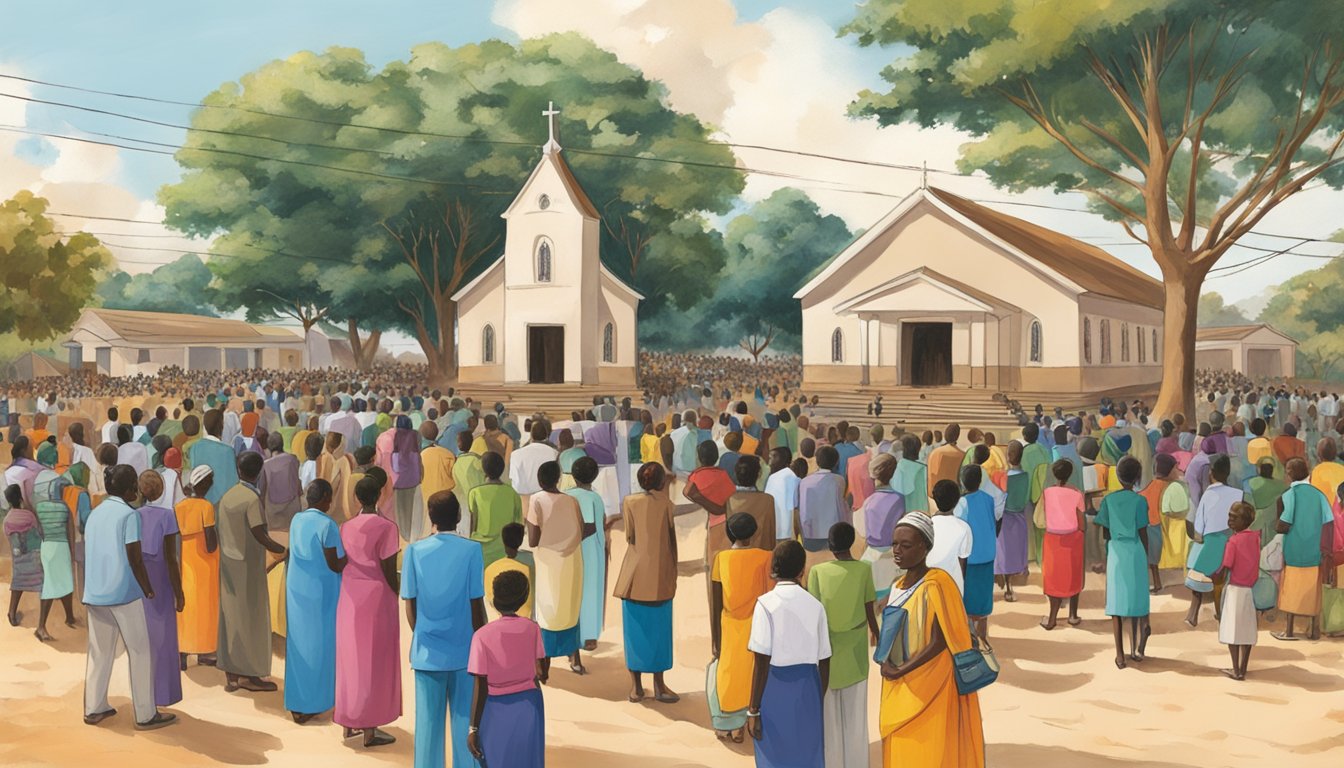According to the 1996 Constitution, Zambia is officially a Christian nation. However, this does not mean that all Zambians are Christians. The country has a rich history of religious diversity and tolerance, with traditional religious beliefs blending easily with Christian beliefs in many of the country’s syncretic churches.
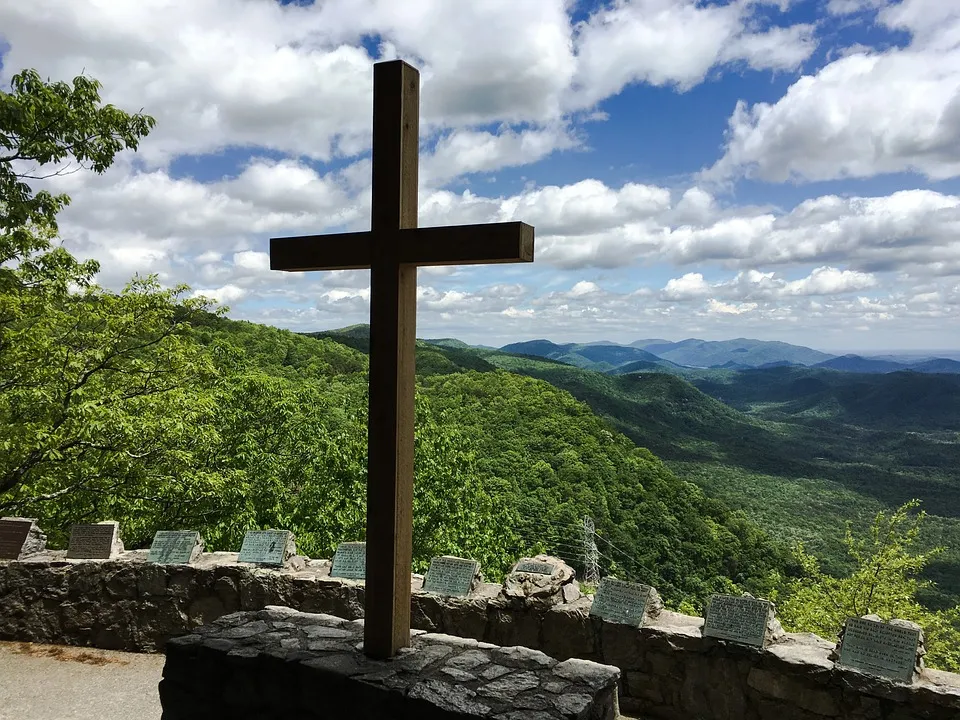
Christianity has been a significant part of religion in Zambia since the European colonial explorations into the interior of Africa in the mid-19th century. The first Christian missions arrived before colonial rule, and the growth of adherents was greatly assisted by the schools that they established. Today, Zambia’s religious demographics are diverse, with the majority of the population identifying as Christian, but also including Muslims, Hindus, and traditional African religions.
Despite the constitutional declaration of Christianity as the state religion, Zambia’s government recognizes and respects the religious rights of all its citizens. The country has a long history of religious tolerance and peaceful coexistence between different religions. Interfaith dialogue is encouraged, and the government has taken steps to ensure that religious institutions are free to practice their beliefs without interference.
Key Takeaways
- Zambia is officially recognized as a Christian nation, but the country has a rich history of religious diversity and tolerance.
- Christianity has been a significant part of religion in Zambia since the mid-19th century, but the country’s religious demographics are diverse.
- Despite the constitutional declaration of Christianity as the state religion, Zambia’s government recognizes and respects the religious rights of all its citizens.
Historical Context of Religion in Zambia

Zambia is a country in southern Africa, and religion has played a significant role in its history. The country has a diverse religious landscape, with Christianity being the dominant religion. However, this was not always the case, and the history of religion in Zambia is complex and multifaceted.
Colonial Influence on Zambian Christianity
Christianity was introduced to Zambia by European missionaries during the colonial era. The first Christian missions arrived before colonial rule, and the growth of adherents was greatly assisted by the schools that they established. David Livingstone, a Scottish missionary and explorer, is also a significant figure in the history of Christianity in Zambia. He explored the interior of Africa in the mid-19th century and wrote extensively about his experiences. His accounts of the region and its people helped to generate interest in the area among European Christians.
During the colonial era, Christianity became increasingly influential in Zambia. The colonial authorities were often sympathetic to Christian missionaries, and they provided them with resources and support. Many Zambians converted to Christianity during this period, and the religion became deeply ingrained in the country’s culture.
Post-Independence Religious Developments
After Zambia gained independence in 1964, religion continued to play an important role in the country’s development. The first president of Zambia, Kenneth Kaunda, was a devout Christian, and he often spoke about the importance of religion in the country’s future. However, Kaunda also recognized the need for religious tolerance, and he encouraged the development of other religions in Zambia.
Today, Zambia is officially a Christian nation according to the 1996 constitution. However, a wide variety of religious traditions exist in the country, including traditional African religions and Islam. Despite this diversity, Christianity remains the dominant religion in Zambia, with the majority of the population identifying as Christian.
In conclusion, the history of religion in Zambia is complex and multifaceted, with Christianity playing a significant role in the country’s development. The colonial era and the post-independence period were both important periods in the development of Christianity in Zambia, and the religion continues to be a significant part of the country’s culture.
Zambia’s Religious Demographics
Zambia is a landlocked country located in Southern Africa. It is home to a diverse population with different religious beliefs. According to the 2021 report by the United States Department of State, 95.5 percent of the Zambian population identifies as Christian, with the majority of them being Protestants. Zambia is officially a Christian nation according to its 1996 constitution, which recognizes the freedom of religion.
Major Religious Groups
The majority of Zambians identify as Christians, with 75.3 percent being Protestants and 20.2 percent being Roman Catholics. Protestant groups with the largest numbers of adherents include the Anglican Church, evangelical Christians, and Pentecostal groups. The 2010 census found that 75.3% of Zambians were Protestant and 20.2% were other Christians (mainly Catholic). Figures in 2020 suggested that 85% of the country had a Christian background, with 34% following Protestantism and 32% following Catholicism.
Minority Religions and Beliefs

Zambia is also home to minority religions and beliefs. Muslims make up a small percentage of the population, with estimates ranging from 1 to 5 percent. There are also small Hindu and Sikh communities. Traditional African beliefs and practices are still prevalent in many parts of the country, and they are often blended with Christian beliefs in many of the country’s syncretic churches.
In conclusion, Zambia is a predominantly Christian nation, with the majority of the population being Protestants and Roman Catholics. However, there are also small Muslim, Hindu, and Sikh communities, as well as traditional African beliefs and practices. The country recognizes the freedom of religion and allows for the practice of different religions.
Christianity as the State Religion
https://www.youtube.com/watch?v=RhFX5kywvCs&embed=true
Declaration of Zambia as a Christian Nation
In 1991, Zambia’s newly elected President, Frederick Chiluba, declared the country a Christian nation despite opposition from some Christian and Muslim leaders [1]. This declaration was later enshrined in the country’s constitution, which recognizes Christianity as the predominant religion in the country and the state religion [2]. The declaration of Zambia as a Christian nation does not automatically lead to intolerance as the constitution guarantees freedom of conscience for all [1].
Implications for Governance and Politics
The declaration of Zambia as a Christian nation has had significant implications for governance and politics in the country. It has given the Christian church a prominent role in the country’s politics, with many church leaders actively involved in political activities [3].
The government has also used the declaration to justify policies that promote Christian values and morals. For example, in 2005, the government introduced a bill that sought to ban same-sex marriages, citing the country’s Christian values [2].
« Is Finding You a Christian Movie? Exploring the Faith-Based Film Genre
Is King 810 a Christian Band? Exploring the Religious Beliefs of the Controversial Group »
However, the declaration has also been criticized for its potential to marginalize other religious groups in the country. The constitution upholds the right of every person to enjoy their freedom of conscience and religion, but some argue that the declaration of Zambia as a Christian nation sends a message that Christianity is the only acceptable religion in the country [1].
Overall, the declaration of Zambia as a Christian nation has had a significant impact on the country’s politics and society. While it has given the Christian church a prominent role in the country’s politics, it has also raised concerns about the potential marginalization of other religious groups.
[1] Lusaka Times
[2] Wikipedia
[3] Christianity Today
Religious Practices and Beliefs in Zambia
https://www.youtube.com/watch?v=Q9-2k1W4SpE&embed=true

Zambia is a religiously diverse country, with Christianity being the predominant religion. According to the 2010 census, 75.3% of Zambians are Protestant, while 20.2% are other Christians, mainly Catholic. The country’s constitution recognizes Christianity as the state religion, but it also guarantees freedom of religion and practices.
Christian Practices
Christianity has been at the heart of religion in Zambia since the European colonial explorations in the mid-19th century. The Christian missions that arrived before colonial rule established schools that greatly assisted in the growth of adherents. Today, Christian practices are widespread in the country, and the majority of Zambians attend church regularly.
Zambian Christians practice various Christian denominations, including Anglican, Baptist, Pentecostal, Methodist, and Seventh-day Adventist. The Christian practices observed in Zambia include prayer, Bible study, and worship services. Christian teachings are also integrated into the educational system, with many schools being run by Christian organizations.
Indigenous Beliefs and Practices
Indigenous beliefs and practices also play a significant role in Zambia’s religious landscape. Many Zambians still practice traditional African religions that involve ancestor worship, spirit possession, and divination. These practices are often intertwined with Christianity, with many people practicing both simultaneously.
Zambian traditional healers, known as witch doctors, are also prevalent in the country. They are believed to have the power to heal the sick, provide protection against evil, and cast spells on enemies. Although the government has outlawed witchcraft practices, many people still seek the services of witch doctors.

In conclusion, Zambia is a religiously diverse country with Christianity being the predominant religion. Zambians practice various Christian denominations and indigenous beliefs and practices, which are often intertwined with Christianity.
The Role of the Church in Zambian Society
Zambia is officially recognized as a Christian nation, and the Church plays a significant role in the country’s social and political life. The Church in Zambia is composed of various denominations, including the Roman Catholic Church, the United Church of Zambia, the Seventh-day Adventist Church, and the Pentecostal Assemblies of God, among others.
Social Services and Education
The Church in Zambia is involved in providing social services and education to the people. The Catholic Church, for example, runs several hospitals and clinics across the country, providing healthcare services to the people. The Church also runs schools and universities, providing education to the people, especially in rural areas where access to education is limited. The Church’s involvement in social services and education has contributed significantly to the development of the country.
Church and Media
The Church in Zambia is also involved in the media industry, with several churches owning radio and television stations. The Church uses these media platforms to spread the gospel and reach out to the people. The media platforms are also used to provide information on social issues and current affairs.

In conclusion, the Church plays a crucial role in the development of Zambia, providing social services and education, and using media platforms to reach out to the people. The Church’s involvement in the country’s social and political life is a testament to its commitment to serving the people and contributing to the country’s development.
Freedom of Religion and Human Rights
https://www.youtube.com/watch?v=RC9uqHtnvzo&embed=true
Constitutional Rights and Freedoms
Zambia’s constitution upholds freedom of conscience, belief, and religion for all persons. It declares the country to be a Christian nation, but this does not mean that other religions are not allowed or discriminated against. According to the United States Department of State, the constitution prohibits religious discrimination and provides for freedom of conscience, belief, and religion for all persons.
The country’s population is estimated to be 17.4 million, with 95.5 percent identifying as Christian. Of these, 75.3 percent identify as Protestant, and 20.2 percent as Roman Catholic. Protestant groups with the largest followings are the Seventh-day Adventists, Pentecostals, and Baptists. Other religious groups include Muslims, Hindus, and Baha’is.
Religious Discrimination and Legal Recourse
Human rights organizations have criticized Zambia for aggressive implementation of restrictions that limit the freedom of religion. The government has been accused of using these restrictions to silence political opposition and religious groups that do not align with their views.

However, the constitution prohibits religious discrimination and provides legal recourse for those who feel that their religious freedom has been violated. The United States Department of State reports that the government generally respects constitutional protections for religious freedom.
In 2020, the government banned the Islamic Religious Council of Zambia, which represents the country’s Muslim community. The ban was later lifted, but it sparked concerns about religious discrimination and the government’s commitment to protecting religious freedom.
Overall, Zambia’s constitution upholds freedom of conscience, belief, and religion for all persons. While there have been concerns about religious discrimination and restrictions on religious freedom, the government generally respects constitutional protections for religious freedom.
Interfaith Relations and Dialogue
https://www.youtube.com/watch?v=LZNqdfp-qUE&embed=true
Zambia is officially declared as a Christian nation, but it is also a diverse country with different religious groups. Interfaith relations and dialogue are essential to promote mutual understanding, respect, and peaceful coexistence among different religious groups.
Interdenominational Cooperation

In Zambia, there are various Christian denominations, and interdenominational cooperation is necessary to promote unity among Christians. The government has been promoting self-regulatory frameworks for church and religious umbrella groups to promote cooperation and eliminate conflicts. The government has also been coordinating public religious celebrations, such as the commemoration of the declaration as a Christian nation (December 29).
Interreligious Engagement and Challenges
Zambia is a multi-religious country with various religious groups, including Christians, Muslims, Hindus, and traditional religions. Interreligious engagement is essential to promote mutual understanding, respect, and peaceful coexistence among different religious groups. However, there are challenges to interreligious engagement in Zambia, including religious discrimination, stereotypes, and misunderstandings.
The government has been promoting interfaith dialogue to address these challenges and promote peaceful coexistence among different religious groups. The Charge d’Affaires of the United States met with religious leaders to discuss issues of religious freedom, interfaith relations, the impact of the COVID-19 pandemic, and the proposed constitutional amendments that would emphasize the country’s declaration as a Christian nation and downplay its multireligious character [1].
In conclusion, interfaith relations and dialogue are essential to promote mutual understanding, respect, and peaceful coexistence among different religious groups in Zambia. The government has been promoting interdenominational cooperation and interfaith dialogue to address the challenges of religious discrimination, stereotypes, and misunderstandings.
[1] Zambia – United States Department of State
Government and Religious Institutions

Zambia is a predominantly Christian country, with over 95% of the population identifying as Christian according to the Zambia Statistics Agency (ZamStats) estimates. The government of Zambia recognizes the importance of religion in the country and has established institutions to oversee religious activities.
Ministry of National Guidance and Religious Affairs
The Ministry of National Guidance and Religious Affairs is responsible for overseeing religious affairs in the country. The ministry was established in 2016 to promote national unity and provide guidance on religious matters. The ministry works closely with religious organizations to ensure that their activities are in line with the government’s policies.
Religious Organizations’ Registration and Regulation
Religious organizations in Zambia are required to register with the government. The registration process is overseen by the Registrar of Societies, who is responsible for ensuring that religious organizations comply with the law. The government has recently introduced new policies and a regulatory framework to ensure that religious organizations operate in a transparent and accountable manner.
The government’s efforts to regulate religious organizations have been met with mixed reactions. Some religious leaders have criticized the government’s interference in religious affairs, while others have welcomed the government’s efforts to promote accountability and transparency.

In conclusion, the government of Zambia recognizes the importance of religion in the country and has established institutions to oversee religious activities. The Ministry of National Guidance and Religious Affairs works closely with religious organizations to ensure that their activities are in line with the government’s policies. Religious organizations are required to register with the government and comply with the law. The government’s efforts to regulate religious organizations have been met with mixed reactions.
National Religious Events and Identity
https://www.youtube.com/watch?v=KnD5Pm9xlrg&embed=true
National Day of Prayer
Zambia is known as a Christian nation, and this is reflected in its national events. One such event is the National Day of Prayer, which is held annually on the first Sunday of December. The day is set aside for the nation to come together and pray for peace, unity, and reconciliation. The President usually leads the prayers, and people from all walks of life attend the event.
The National Day of Prayer is not just for Christians but for people of all faiths. It is a day when the nation comes together to seek divine intervention in the affairs of the country. The day is also marked by fasting, which is seen as a way of showing humility and seeking God’s favor.
Religion and National Identity
Religion plays a significant role in the national identity of Zambia. As mentioned earlier, the country is known as a Christian nation, and this is reflected in the way people live their lives. The majority of Zambians are Christians, and this is evident in the way they conduct themselves.

Religion is not just a personal matter in Zambia but a national one. It is a source of pride for the country, and people are proud to be associated with their faith. The national motto, “One Zambia, One Nation,” reflects the country’s desire for unity, and religion plays a significant role in achieving that unity.
In conclusion, religion is an essential aspect of the national identity of Zambia. The National Day of Prayer is just one of the ways in which the country celebrates its faith. Religion is not just a personal matter but a national one, and it is a source of pride for the country.
Religious Tolerance and Conflicts
https://www.youtube.com/watch?v=TVcTSLsS3WE&embed=true
Instances of Religious Tolerance
Zambia is known for its religious tolerance and peaceful coexistence among different religious groups. The country’s constitution guarantees freedom of religion, and the government generally respects this right. People of different religions are free to practice their faith without fear of persecution or discrimination.
Instances of religious tolerance can be seen in various aspects of Zambian society. For example, interfaith marriages are common, and people of different religions often participate in each other’s religious celebrations. Moreover, many religious organizations in Zambia engage in charitable activities that benefit people of all faiths.
Religious Conflicts and Violence
Despite the country’s reputation for religious tolerance, there have been instances of religious conflicts and violence in Zambia. Most of these conflicts have been between Christian groups with different beliefs or between Christians and traditional religious practitioners.
One example of religious conflict in Zambia occurred in 2018 when a group of Christians attacked a mosque in Ndola, a city in the Copperbelt Province. The attack was reportedly in response to rumors that Muslims were planning to build a mosque in a predominantly Christian area.
Another example of religious violence occurred in 2020 when a group of Christians attacked a group of traditional religious practitioners in the Eastern Province. The attack was reportedly in response to allegations that the traditional practitioners were practicing witchcraft and causing harm to the community.
Despite these instances of religious conflicts and violence, Zambia remains a relatively peaceful country with a strong tradition of religious tolerance. The government and civil society organizations continue to work towards promoting religious freedom and peaceful coexistence among different religious groups.
Frequently Asked Questions
https://www.youtube.com/watch?v=dDAY0e59I1g&embed=true
What are the predominant religions practiced in Zambia?
According to Zambia Statistics Agency (ZamStats) estimates, 95.5 percent of the country’s population is Christian, with 75.3 percent identifying as Protestant and 20.2 percent as Roman Catholic. Other religions such as Islam, Hinduism, and Buddhism are also practiced in Zambia, albeit in smaller numbers.
How did Christianity become prominent in Zambia?
Christianity became prominent in Zambia during the European colonial explorations into the interior of Africa in the mid-19th century. Missionaries from various Christian denominations established churches and schools, which helped spread Christianity throughout the country.
What are the implications of Zambia being declared a Christian nation?
In 1991, Zambia added a clause to its constitution declaring it a Christian nation. The declaration has had significant implications for the country’s laws and policies, including the promotion of Christian values and principles in the public sphere. However, it has also been criticized for potentially limiting the religious freedom of non-Christian groups.
Can people freely practice other religions in Zambia?
Zambia’s constitution guarantees freedom of religion, and the government generally respects this right in practice. Non-Christian groups are allowed to practice their religions freely, and the government has taken steps to promote interfaith dialogue and understanding.
How does the declaration of Zambia as a Christian nation affect its laws and policies?
The declaration of Zambia as a Christian nation has had a significant impact on the country’s laws and policies. For example, the government has established a Ministry of National Guidance and Religious Affairs, which is responsible for promoting Christian values and principles in the public sphere. Additionally, Christian holidays such as Christmas and Easter are recognized as national holidays.
What is the historical background of Zambia’s declaration as a Christian nation?
The declaration of Zambia as a Christian nation was added to the country’s constitution in 1991, following a referendum in which the majority of Zambians voted in favor of the clause. The declaration was seen as a way to promote unity and national identity in a country with a diverse religious landscape. However, it has also been criticized for potentially limiting the religious freedom of non-Christian groups.

